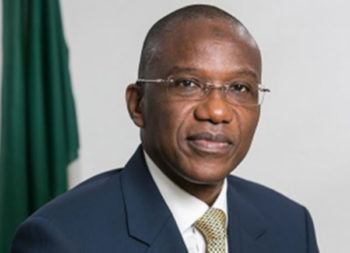
The Asset Management Corporation of Nigeria (AMCON), has recovered bad loans worth N731 billion.
The loans exclude clawbacks, from the start of its operations in 2010 up to December 2017.
It added that assets in the form of properties accounted for about 35 percent of the total amount recovered in the seven-year period.
AMCON’s Managing Director, Ahmed Kuru, disclosed this on Thursday while declaring open a two-day Asset Sales Strategy Retreat in Abuja.
Kuru noted that inflation and other market dynamics have made it difficult to convert recovered assets to cash at “competitive market rates”.
He said restructuring the corporation and collaborating with stakeholders would enable AMCON to achieve its goal of speedy disposal of assets in order to meet repayment obligations.
He said, “As you may be aware, one of the key objectives of AMCON is—to obtain the best achievable financial returns for all assets acquired. Following the acquisition of Eligible Bank Assets (EBAs), AMCON is now saddled with the responsibility for recovering the bad loans either through cash repayments or asset forfeitures/foreclosures.”
“In fact, the bulk of recoveries, which have been recorded at AMCON are in form of asset recoveries. Considering the fact that AMCON’s obligations to the Central Bank Nigeria (CBN) is in the form of cash repayment, AMCON, therefore, has the responsibility of converting the assets into cash in order to meet the repayment obligations.
“At AMCON, we have realized that we cannot continue to do business as usual – it has therefore become imperative for us to seek more innovative ways of converting our huge portfolio of assets into liquid cash as quickly as possible.
“We have convened some of the most resourceful real estate professionals and legal experts to this forum to help brainstorm through the issues and proffer practical solutions to the challenges confronting AMCON. We also invited critical regulatory stakeholders to contribute to the discourse toward finding workable solutions.”
An Executive Director at AMCON, Eberechukwu Uneze, also spoke on the need for AMCON to collaborate with stakeholders in order to “dispose its stockpile of assets in the regular open market”.
He said the assets cut across critical sectors of the economy including but not limited to real estate, energy, transportation and aviation, maritime, agriculture and manufacturing.